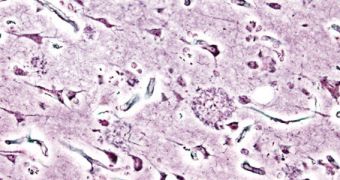A team of investigators from the Johns Hopkins University announces the development of a model that can be used to determine when memory loss heralds the development of Alzheimer's disease or other forms of dementia, as opposed to when it simply accompanies old age.
The model is based on scores obtained from cognitive tests, the research group says of this proof-of-concept study. Their work analyzed the cases of 528 test participants, aged 60 and above, from 1996 to 2004, EurekAlert reports.
The new tool could help doctors pinpoint the 5-to-10 percent of mild cognitive impairment (MCI) sufferers who will eventually go on to develop Alzheimer's disease. This condition affects memory, language, attention, and neural processing speed, among others.
In the study, the team looked at how both healthy and ill patients scored on tests, and developed a model based on variations in score. The more a person strayed from mean values, the higher the chances that they would eventually develop Alzheimer's.
Details of the new model were published in the November 12 online issue of the esteemed journal Neuropsychology. The work was supported by the National Institute of Mental Health, among other institutions.

 14 DAY TRIAL //
14 DAY TRIAL //